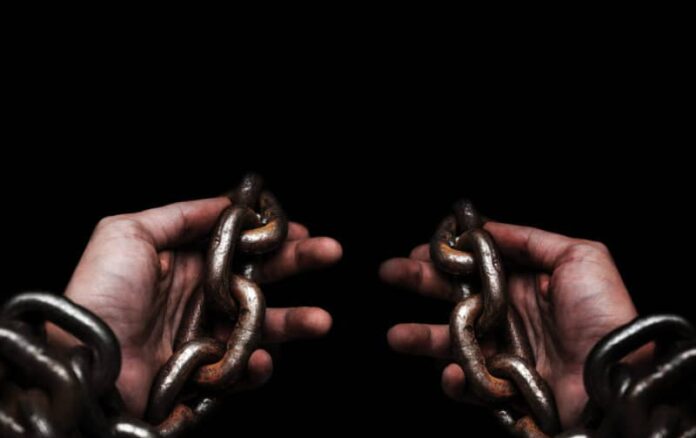Many people have been or are still bound by the chains of addiction.
Like a chain, addiction starts as one interaction with a substance, leading to another link and another. Recovery can break the chains.
What holds us back from recovery? Externals or things outside ourselves — such as being in a certain place — can slow recovery.
Our own internal thoughts and addiction desires can also lead to relapse.
Say you’re trying to stop smoking. An external influence could be a pack of cigarettes and a lighter in a handy place.
Internal stumbling blocks could be justifying thoughts of why you should have a cigarette — you really want it, or it’s no use trying to quit or smoking is your only reward.
These feelings are called triggering emotions.
Getting help with addiction is the key. Sheer will power is rarely enough.
Persons struggling with overeating cannot just stop taking in food. Someone addicted to online pornography likely can’t totally avoid using computers or phones.
Professional addiction counselors can help identify external and internal triggers and work out ways to avoid and resist them. Managing cravings and changing how you respond to temptation varies by addiction type, and addiction counselors can help with this.
First steps for help: Contact your primary clinic. Call Dallas County Health Navigation for options at 515-993-3750.
Here are some reputable websites to assist you in finding a professional for the care you need:
https://www.psychologytoday.com/us
https://www.newhopeadel.org/care
https://alcoholicsanonymous.com/aa-meetings/iowa/perry-iowa/
https://alcoholicsanonymous.com/aa-meetings/iowa/adel-iowa/
Ann Cochran is the health navigation coordinator in the Dallas County Public Health Department.


















The preconceived erroneous notion that addicts are simply weak-willed and/or have committed a moral crime is, fortunately, gradually dying.
Still, neglecting people dealing with debilitating drug addiction should never have been an acceptable or preferable political option. But the callous politics typically involved with addiction funding/services likely reflect conservative electorate opposition, however irrational, towards making proper treatment available to low- and no-income addicts.
It’s as though some people, however precious, can tragically be consciously or subconsciously considered disposable — especially by government bean-counters — because they are debilitatedly addicted to drugs. Then those people may begin perceiving themselves as worthless and consume their addictive substances more haphazardly.
I used to be one of those who, while sympathetic, would look down on those who’d ‘allowed’ themselves to become addicted to alcohol and illicit drugs. Yet, though I have not been personally affected by the opioid addiction/overdose crisis, I myself have suffered enough unrelenting ACE-related hyper-anxiety to have known, enjoyed and appreciated the great release upon consuming alcohol and/or THC.
Often societally — and often enough, willfully — overlooked is that intense addiction usually does not originate from a bout of boredom, where a person repeatedly consumed recreationally but became heavily hooked — and homeless, soon after — on an unregulated often-deadly chemical that eventually destroyed their life and even those of loved-ones.
Emotional/psychological trauma from unhindered toxic abuse, for example, usually results in a helpless child’s brain improperly developing. If allowed to continue for a prolonged period, it can act as a starting point into a life in which the brain uncontrollably releases potentially damaging levels of inflammation-promoting stress hormones and chemicals, even in non-stressful daily routines.
The lasting mental pain is very formidable and can make every day a mental ordeal, unless the turmoil is treated with some form of medicating, either prescribed or illicit.